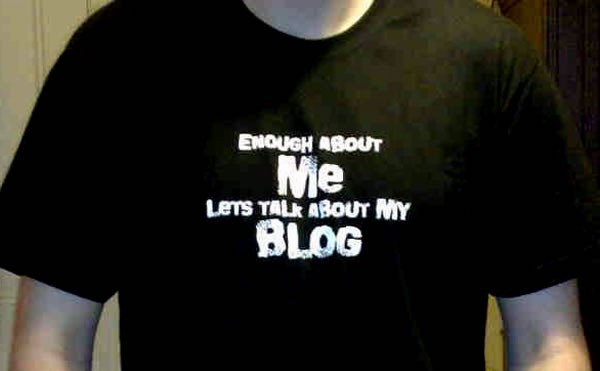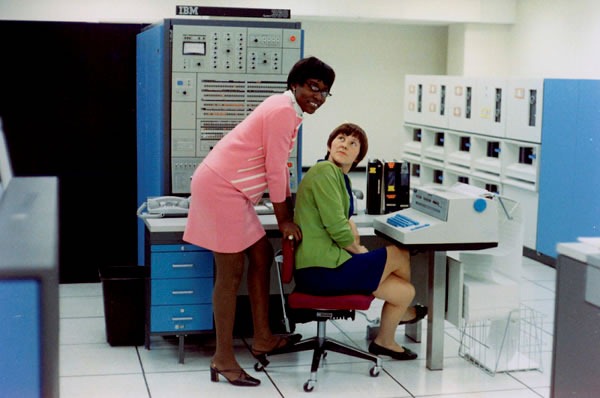What’s a Blogger?

I’m sure that the folks at the New York Times are regularly told by everyone – analysts, tech pundits, their customers and even their peers – that their industry is doomed. So it’s not hard to imagine the schadenfreude with which they reported the decline of blogging in a recent article titled Blogs Wane as the Young Drift to Sites Like Twitter. In the article, they suggest that blogs are no longer the platform of choice, with sites like Facebook, Twitter, Tumblr and YouTube being the preferred way for people to make their mark online, and especially the young’uns.
I think that the data they cite are correct, but the conclusion they come to and the article title are wrong.
First, the source: the report they cite comes from a source I often rely on: The Pew Research Center, a “think tank” that seeks to disseminate facts on the issues, attitudes and trends that influence America and the world. One of “The Pew’s” projects is the Pew Internet and American Life Project, which churns out some of the best reports on the impact of the internet and technology on all aspects of life: day-to-day, education, work, health care, civics/politics, and more. If you truly wish to be in charge of your career as a software developer, you need to know how your customers use technology and better still, how they will use up-and-coming technologies. To that end, the Pew Internet and American Life Project’s reports are useful tools for getting “the lay of the land” and some glimpses into the future.
Now, the conclusion and why it’s wrong: Scott Rosenberg hits the nail on the head in his blog Wordyard. He points out that if you actually read the Pew Internet and American Life Project’s report, titled Generations Online in 2010, you’ll see that blogging is still on the rise. Here’s the relevant excerpt:
Few of the activities covered in this report have decreased in popularity for any age group, with the notable exception of blogging. Only half as many online teens work on their own blog as did in 2006, and Millennial generation adults ages 18-33 have also seen a modest decline—a development that may be related to the quickly-growing popularity of social network sites. At the same time, however, blogging’s popularity increased among most older generations, and as a result the rate of blogging for all online adults rose slightly overall from 11% in late 2008 to 14% in 2010.
Back at the time when blogging began – I think of it as 1997, when Jorn Barger coined the term “weblog”; Peter Merholz would later shorten it to “blog” in 1999 – blogging tools were the simplest way for someone to express themselves regularly online. Before that, you’ve have to manually create your own web pages and manage the site structure yourself, and even people with the skill and know-how to do that couldn’t be bothered. Blogging tools lowered the effort barrier and got the first bloggers going; as blogging tools and platforms improved, that effort barrier got lower and lower and more and more people became bloggers.
Even though the number of bloggers has grown dramatically, not everyone is going to be a blogger. There are still barriers to entry, and at this point in blogging’s evolution, most of them aren’t technical barriers, but barriers of skill and inclination. We’re not all writers, journalists, pundits, storytellers or essayists, just as we’re not all chefs, performing musicians, actors or carpenters. Most people just aren’t going to blog, and from looking at the writing and communications skills of a lot of people, most people just can’t. And that’s okay.
While most people aren’t going to write the sort of longer-form stuff that blogs were meant to handle, they still want to communicate and express themselves. It is, after all, a truly human desire, and luckily for them, other platforms more suitable than blogs have popped up. Facebook is a far better way to send messages and share stuff with friends and family, and I use it in ways that I don’t use my blog. Most people don’t have it in them to write articles on a regular basis, but they certainly have things to say, and many of those things can be said in 140 characters or less – hence Twitter. Once again, I use it, and in a different way from blogging or Facebook.
One glaring example of people being better at saying things in short form than long form is S*** My Dad Says. The guy was great in 140 characters or less, but the TV show that he parleyed his tweets into was pretty lame.
In the end, it’s all blogging to me, whether you’re doing it with a “blogging” platform or social media software or photo/video sharing services. It’s all self-expression, managed by some application so you can focus on the content, put online in some findable, navigable fashion, and generally arranged in reverse chronological order. The how isn’t relevant, it’s the what that counts.
What’s a Developer?
For a real blast from the past, take a look at look at “Larry” Luckham’s photos from Bell Labs in the late 1960s, where he managed a data center and worked on building an information retrieval system (which we’d probably do today by setting up SharePoint). Marvel at the ancient machinery – much of which could be outclassed by your present day laptop or even your phone – as well as the fashions and oh, the hair!
Once you’ve done that initial marvelling, make a note of the titles of the people working the computers. “Computer operations supervisor”. “Computer operator”. The people designated “Programmers” were mathematicians by training. Many of them were maintaining the system and doing what we’d consider IT pro stuff today, but a lot of their work was developing software. Because of this, I’m inclined to think of all of them as developers.
What’s a developer? This is a question that my manager John Oxley loves to ask us developer evangelists on a regular basis. The reason he does this is to make sure that when we’re reaching out to developers across Canada, we’re not mistakenly limiting our scope and leaving people out. We don’t want to make the same mistake the New York Times did, in considering only those people who used traditional blogging software as “bloggers”.
My own thinking is that if you, in the course of your work, spend some time turning ideas into working software, you’re a developer:
- Do you build SharePoint applications by using lists, other people’s web parts and SharePoint Designer? You’re a developer.
- Do you build sites with HTML, CSS and some JavaScript? You’re a developer.
- Are you a student or hobbyist learning how to program or taking up a new programming language? You’re a developer.
- Are you what we at Microsoft call an “IT Pro” who’s putting together some Powershell scripts to make your life easier? You’re a developer.
- And of course, if you’re building applications for any of the “Three screens and the Cloud”, yes, you’re a developer.
I will say it once more for emphasis: if you, in the course of your work, spend some time turning ideas into working software, you’re a developer. As with what I think of blogging vs, Facebook, Twitter, Tumbler and so on: the how isn’t the important part, it’s the what
“What’s a developer?” may seem like a silly question with an obvious answer, but in the asking, we’re making sure that we’re helping you, as developers, sharpen your skills, expand your knowledge, grow your careers and in the uber-big picture, make the world better.
What are YOU, Online?

I started this article talking about online self-expression and I’ve just finished talking about what a developer is. It’s now time to talk about where the two intersect.
In the recent GigaOm article Nowhere to Hide: Assessing Your Work Reputation Online, Niel Robertson writes that with all the data about ourselves online, coupled with ubiquitous processing power, “we’re heading into a world of unprecedented measurability”. He also posits that “Historically, great advances in society have been directly correlated to progress in two things: computational capability and measurement.” Taken together, there are going to be some king-sized changes in the way we’re evaluated – by our peers, employers and customers.
I’m already being measured along those dimensions. Part of the “Commitments” document I create at the start of each fiscal year already includes online reputation. Audience reach is part of my job performance rating, and blog pageviews and Twitter follower counts are part of that. And yes, I know what my Klout score is.
The point of the article is best summed up in its final paragraph (with a little boldface added by me for emphasis):
The next 20 years of work activity will see an incredible change in how we are measured. If you’re not thinking about your expert reputation and how to build it, it’s probably time to do so. The next time you look for a job, don’t be surprised if someone asks you for your score.
As developer evangelists for Canada, we’re here to help you build your reputation. We want to hear and broadcast your stories and your successes. We’ll help you promote yourself, your work, your projects and your company. We’ll show you how to make the most of online resources and social networking to help boost your career. That’s what we’re here to do.
Need a hand making your online reputation? Let us know! Feel free to tell us what you need or think, whether in the comments, or by emailing me (or any of my teammates) directly.

One reply on “What’s a Blogger? What’s a Developer? What are YOU, Online?”
[…] Image Via: globalnerdy.com […]